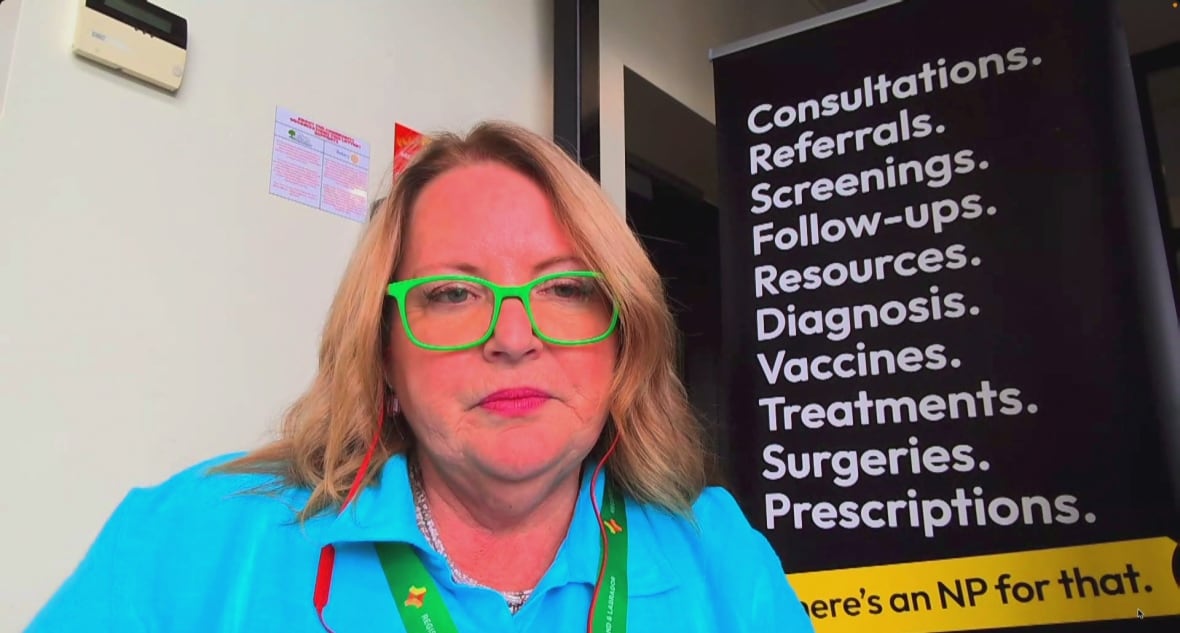Health
Union Raises Concerns Over Shift to Private Nurses in Newfoundland

The Registered Nurses’ Union of Newfoundland and Labrador has raised alarms about a significant shift in healthcare practices within the province. According to the union, private nurses are now performing intake work that was previously the responsibility of public sector nurses. This change has implications for the future of the publicly-funded healthcare system in Newfoundland and Labrador.
Yvette Coffey, president of the Registered Nurses’ Union, highlighted that the roles in question involve connecting patients assigned to family care teams—who have not yet been linked with a family doctor or nurse practitioner—to virtual care options. Traditionally, this intake work was managed by registered nurses in the public sector, ensuring continuity of care for patients.
Coffey stated, “That’s money that came out of our public health-care system that could have been used toward the registered nurses, the nurse practitioners or other health-care providers.” The shift to private nurses, specifically those employed by the U.S.-based virtual care provider Teladoc, was implemented without prior notification to the union by Newfoundland and Labrador Health Services or the provincial government.
Union’s Response to Privatization Concerns
The union expressed its concerns that this decision represents a further step towards the privatization of healthcare services in the province. Coffey noted that the union was unaware of the move until it was already executed. “In [the] Eastern [zone]… they’ve gone ahead and given that work to Teladoc. Our bargaining unit work,” she remarked.
The implications of this decision extend beyond just the intake process. The union estimates that once all family care teams are fully operational, the roles could involve between 25 and 35 nurses. These positions are considered desirable due to the opportunity to work standard business hours in a role that is less physically demanding, which is appealing to many nurses nearing the end of their careers.
Coffey elaborated, “You can get through the last ten years or the last five years of your career. They have taken away that opportunity.”
In response to this shift, the union has filed grievances and requested a meeting with provincial officials. However, as of the latest updates, they have not received a response. The situation remains a pressing concern for healthcare workers in Newfoundland and Labrador, as the balance between public and private healthcare services continues to evolve.
CBC News has reached out to the Department of Health for comments regarding the situation but has yet to receive a reply. The implications of this change could significantly impact public healthcare delivery in the province, marking a critical juncture in the ongoing debate over healthcare privatization in Canada.
-

 Science3 months ago
Science3 months agoToyoake City Proposes Daily Two-Hour Smartphone Use Limit
-

 Top Stories3 months ago
Top Stories3 months agoPedestrian Fatally Injured in Esquimalt Collision on August 14
-

 Health3 months ago
Health3 months agoB.C. Review Reveals Urgent Need for Rare-Disease Drug Reforms
-

 Technology3 months ago
Technology3 months agoDark Adventure Game “Bye Sweet Carole” Set for October Release
-

 World3 months ago
World3 months agoJimmy Lai’s Defense Challenges Charges Under National Security Law
-

 Lifestyle3 months ago
Lifestyle3 months agoVictoria’s Pop-Up Shop Shines Light on B.C.’s Wolf Cull
-

 Technology3 months ago
Technology3 months agoKonami Revives Iconic Metal Gear Solid Delta Ahead of Release
-

 Technology3 months ago
Technology3 months agoApple Expands Self-Service Repair Program to Canada
-

 Technology3 months ago
Technology3 months agoSnapmaker U1 Color 3D Printer Redefines Speed and Sustainability
-

 Technology3 months ago
Technology3 months agoAION Folding Knife: Redefining EDC Design with Premium Materials
-

 Technology3 months ago
Technology3 months agoSolve Today’s Wordle Challenge: Hints and Answer for August 19
-

 Business3 months ago
Business3 months agoGordon Murray Automotive Unveils S1 LM and Le Mans GTR at Monterey









